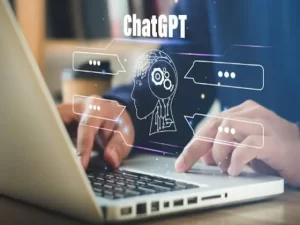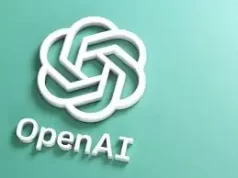Artificial intelligence (AI) is transforming the job market, and one of the most sought-after skills is ChatGPT. ChatGPT is a large language model that can generate human-like responses to text-based inputs. Since its release in November 2022, ChatGPT has been used to write cover letters, create children’s books, and even help students cheat on their essays. In this article, we will explore the impact of ChatGPT on the job market and the lucrative job opportunities that come with mastering this skill.
CHECK: Why More Nigerians Prefer Self-Employment
Table of Contents
The Impact of ChatGPT on the Job Market
Experts say that ChatGPT and related AI could threaten some jobs, particularly white-collar ones. It could do so by automating mid-career, mid-ability work. A new study shows that job applicants may want to add ChatGPT to their resumes. Udemy, an online learning platform, compiled a Global Workplace Learning Index in which the company analyzes its course consumption to see what skills businesses are most interested in. The index showed that the top global tech skill for businesses in the first quarter of 2023 was ChatGPT, which experienced a 4,419% increase in global topic consumption from the fourth quarter of 2022. Nine in 10 companies want workers with ChatGPT experience, according to a new survey that gauges job-market demand for knowledge of fast-evolving AI communication tools.
However, ChatGPT is also creating new job opportunities for those who can adapt and leverage this skill. AI has created a field that never existed before — prompt engineering. To work as a prompt engineer, you must know how to create prompts that generate desirable responses from AI models such as those used by ChatGPT. Artificial intelligence company, Anthropic, has a role for a “prompt engineer and librarian” with a salary range between $175,000 and $335,000.
CHECK: Everything You Need to Know About Tecno POVA 5
Here are some of the high-paying jobs that require ChatGPT expertise:
1. Marketing professionals:
Candidates with ChatGPT expertise bring a competitive advantage by being able to create marketing systems at scale. Some firms are even hiring for ChatGPT-specific roles.
2. Prompt engineers:
To work as a prompt engineer, you must know how to create prompts that generate desirable responses from AI models such as those used by ChatGPT. Artificial intelligence company, Anthropic, has a role for a “prompt engineer and librarian” with a salary range between $175,000 and $335,000.
3. Software developers:
ChatGPT is being used to automate mid-career, mid-ability work, which could threaten some jobs, particularly white-collar ones. However, software developers with ChatGPT expertise are in high demand..
4. ChatGPT instructors:
Companies are looking for instructors who can teach others how to use ChatGPT.
5. ChatGPT client managers:
Companies are looking for client managers who can manage ChatGPT projects.
6. AI and machine learning researchers:
ChatGPT is a large language model that can generate human-like responses to text-based inputs. AI and machine learning researchers with ChatGPT expertise are in high demand.
7. AI content generation and editing specialists:
Companies are looking for specialists who can generate and edit content using ChatGPT.
8. Klaviyo + ChatGPT email marketing super experts:
Companies are looking for experts who can use ChatGPT to help run email marketing campaigns.
9. ChatGPT developers:
Companies are looking for developers who can build ChatGPT products.
CHECK: Instagram Threads: All About The Potential Twitter Competitor
How to Master ChatGPT
To master ChatGPT, you need to know how to create prompts that generate desirable responses from AI models such as those used by ChatGPT. You should also be familiar with the architecture and operation of large language models and have basic programming skills.
Creating Better ChatGPT Prompts
To create better ChatGPT prompts, you should be specific about the topic and context you want the text to be about, provide examples or templates of the desired output, and use language that is consistent with the desired tone and style of the text. You can also find tips and guidance on creating better ChatGPT prompts on various platforms, such as Udemy and Coursera.
Learning About Large Language Models
Large language models (LLMs) are foundational machine learning models that use deep learning algorithms to process and understand natural language. These models are trained on massive amounts of text data to learn patterns and entity relationships in the language. LLMs can perform many types of language tasks, such as translating languages, analyzing sentiments, chatbot conversations, and more. To learn more about LLMs and their importance in natural language processing, you can explore online courses and reading lists on platforms such as Class Central and Sebastian Raschka’s blog.
Joining ChatGPT Communities
Joining online communities and forums can help you connect with other ChatGPT experts and learn from their experiences. OpenAI Community, the company behind ChatGPT, has a discussion forum where you can ask questions and share knowledge. Other ChatGPT communities include DataFit.ai and FlowGPT, which provide access to a community-driven collection of ChatGPT prompts.
Improving Programming Skills
To improve your programming skills, you can take online courses on platforms such as Udemy and Coursera. You can also use ChatGPT to learn new programming languages, functions, and libraries faster. Since ChatGPT has a vast knowledge of all the above, it can explain any coding concept so you can accelerate your learning of any aspect of programming.
Learning Resources
1. Udemy:
Udemy offers a variety of courses that can help learners master ChatGPT and leverage its capabilities for building chatbots and text generation applications. Some of the top courses include “OpenAI Python API Bootcamp: Learn to use AI, GPT, and more!” and “Mastering OpenAI Python APIs: Unleash ChatGPT and GPT4”.
2. Skillshare:
“Mastering ChatGPT: A Comprehensive Guide to Natural Language Generation” is a course on Skillshare that teaches learners how to fine-tune and train the model for specific tasks, and how to use advanced features to improve their language generation skills.
3. YouTube:
There are several YouTube tutorials available that provide a comprehensive guide to using ChatGPT. “ChatGPT Tutorial: How to Use Chat GPT For Beginners 2023” is a complete course on ChatGPT that covers everything from the basics to advanced techniques.
4. ChatGPT Community Forum:
The OpenAI Developer Forum is a community site where developers can ask questions and get help building with the OpenAI platform. The forum is a great resource for anyone looking to learn more about ChatGPT and related AI.
5. Class Central:
Class Central offers over 200 ChatGPT courses and certifications from top universities around the world. Some of the best courses include “Unlock the full potential of ChatGPT and prompt engineering with these top-rated courses” and “Mastering ChatGPT in 2023 *WEEKLY UPDATES*.
6. Medium:
“Top 5 ChatGPT Online Courses for Beginners in 2023” is an article on Medium that provides a list of the best ChatGPT courses for programmers, developers, and anyone who wants to use ChatGPT better.
7. ChatGPT Tutorials:
“ChatGPT Tutorials” is a YouTube channel that provides tutorials on how to use ChatGPT to generate code for real-world projects like building websites, web apps, and solving programming problems.
8. ChatGPT Cheat Sheets:
There are several ChatGPT cheat sheets available online that provide tips and tricks for NLP, code, structure and unstructured output, media types, and meta ChatGPT. The OpenAI Cookbook is a great resource for understanding the OpenAI API and using it to build ChatGPT applications.
9. Common Sense Education:
“Free Resources to Explore and Use ChatGPT and AI” is an article on Common Sense Education that provides beginner-level explainers, in-depth reports, and webinars to help you understand the different types of AI better.
Tips for Mastering ChatGPT
1. Practice:
The more you use ChatGPT, the more comfortable you will become with it. Practice generating responses to different prompts and see how the model responds.
2. Fine-tune the model:
Fine-tuning the model involves training it on a specific dataset to improve its performance on a particular task. By fine-tuning the model, you can customize it to your specific needs.
3. Learn how to prompt the model:
Learning how to prompt the model is essential to getting the desired output. You need to know how to ask the right questions and provide the right context to get the best responses.
4. Stay up-to-date:
ChatGPT is constantly evolving, and new features are being added all the time. Stay up-to-date with the latest developments to ensure that you are using the model to its full potential.
Common Mistakes to Avoid When Writing Prompts for ChatGPT
When writing prompts for ChatGPT, it’s important to avoid common mistakes that can lead to poor results. Here are some of the most common mistakes to avoid:
Overloading the Prompt with Too Much Information
One common mistake is overloading the prompt with too much information. While it’s important to provide enough context and purpose, it’s also important to keep the prompt concise and avoid overwhelming the model.
Being Vague or Ambiguous
Using unclear or ambiguous prompts can lead to unexpected or irrelevant responses. Be specific and precise in your prompts to guide ChatGPT towards generating the desired content. Clearly define the context, topic, or task you want the model to focus on.
Mixing Topics in a Single Chat Session
While it may not seem concerning to prompt on diverse topics within the same chat session, it’s worth paying attention to. ChatGPT is highly sensitive to context. Each prompt you introduce during a chat session can greatly shape the responses you receive from subsequent prompts.
Not Providing Context When Necessary
Providing relevant context can help ChatGPT better understand what you’re looking for and generate more accurate responses. Be sure to provide enough context to help narrow down the scope of the answer.
Not Using Examples
Providing examples or templates of the desired output can help ChatGPT better understand the tone and style of the text you’re looking for. Use language that is consistent with the desired tone and style of the text.
Not Being Clear and Specific With Your Instructions
The more specific you can be about what you want ChatGPT to do, the better results you will get. Ensure your prompts contain all the necessary information and context for the model to generate relevant responses.
Not Giving Examples of What You Want
Providing examples of the desired output can help ChatGPT better understand what you’re looking for and generate more accurate responses. Use language that is consistent with the desired tone and style of the text.
Not Being Specific About Your Output Goals
ChatGPT has been trained to prefer certain outputs. Often people get generic answers because they are not specific enough about what they want. Be clear about your output goals to get better results.
Asking a Language Model to Do Something It Can’t
ChatGPT is a powerful tool, but it has its limitations. Be aware of what ChatGPT can and cannot do, and avoid asking it to do something it’s not capable of.
Not Giving ChatGPT Enough Information
It’s important to give ChatGPT as much information as possible to avoid tedious rewriting, either manually or through another prompt.
Not Being Specific About Your Goal
Describe your goal in detail to help ChatGPT understand what you’re looking for and generate more accurate responses.
Not Describing Your Setting and Providing Context
Providing relevant context can help ChatGPT better understand what you’re looking for and generate more accurate responses. Be sure to describe your setting and provide enough context to help narrow down the scope of the answer.
Effective Prompt Examples for ChatGPT
Here are some examples of effective prompts for ChatGPT based on the different types of prompts you requested:
Marketing
– Can you provide me with some ideas for blog posts about [topic of your choice]?
– Write a minute-long script for an advertisement about [product or service or company].
– Write a product description for my [product or service or company].
Short Story
– Write a short story about a [character or situation].
– Can you write a story with the following plot [insert plot]?
– Write a story that takes place in [location or time period].
Simplifying Complex Notions
– Explain [specific topic] in simple terms.
– Can you provide a summary of [specific topic]?
– What are the key takeaways from [specific topic]?
Role Play
– Act as a [character or profession] and respond to my questions.
– Can you play the role of [character or profession] and provide advice on [specific topic]?
– Let’s role play a conversation between [two characters or professions] about [specific topic].
Product Description
– Write a product description for [specific product].
– Can you describe the features and benefits of [specific product]?
– Write a comparison of [specific product] and [similar product].
The Potential Challenges and Limitations of Job Opportunities Associated with ChatGPT
1. Job Disruption and Displacement
One of the most significant challenges associated with ChatGPT is the potential for job disruption and displacement. Automation and job loss are some of the dark sides of ChatGPT. As ChatGPT and related AI continue to develop, they could threaten some jobs, particularly white-collar ones, by automating mid-career, mid-ability work. With chatbots now able to write content and create visuals, AI threatens to disrupt jobs like designers and software engineers and take over a wide range of repetitive work tasks now handled by humans.
2. Limited Knowledge
Although ChatGPT has access to a large amount of information, it is not able to access all of the knowledge that humans have. It may not be able to answer questions about very specific or niche topics, and it may not be aware of recent developments or changes in certain fields.
3. Computational Costs and Power
ChatGPT is a highly complex and sophisticated AI language model that requires substantial computational resources to operate efficiently. Running the model can be expensive and may require access to specialized hardware and software systems. Additionally, running ChatGPT on low-end hardware or systems with limited computational power can result in slower processing times, reduced accuracy, and other performance issues.
4. Ethical Implications
Another possible disadvantage of providing access to ChatGPT is the ethical implications of utilizing AI in the workplace. There are concerns that it may diminish employees’ critical thinking skills.
5. Need for New Skills
For job seekers, the rise of ChatGPT means that they will need to develop new skills to remain competitive in the job market. Jobs requesting AI or machine-learning skills are expected to increase by 71% in the next five years.
6. Job Creation
While ChatGPT may threaten some jobs, it could also create many new jobs and change the nature of existing work positions. Companies are already hiring for ChatGPT experience, and HR departments may start using AI to help in the hiring process, training the technology to rate resumes and identify ideal candidates.
Adapting to the Changing Job Market with the Rise of AI and ChatGPT
As AI and ChatGPT continue to develop, it is important for workers to adapt to the changing job market.
1. Skills Needed for AI and ChatGPT Jobs
Working alongside artificial intelligence will be “as inherent” as how we work with the internet, and employees need to equip themselves with skills for this new future. According to LinkedIn, the five fastest-growing AI-related skills in 2022 were question answering, classification, recommender systems, natural language processing, and deep learning. ChatGPT is the latest in-demand job skill companies are hiring for, and 90% of U.S. business leaders say having ChatGPT experience is a plus for job seekers.
2. Training for AI and ChatGPT Jobs
There are already ChatGPT training courses available, and tens of thousands of people are taking them to stay ahead in the job market. Companies are also hiring for ChatGPT experience and using it to perform a variety of tasks such as content creation and customer service.
3. Job Market Trends with AI and ChatGPT
Generative AI and chatbots, including ChatGPT, will create many new jobs and change the nature of existing work positions. However, there are also concerns that AI could replace some jobs, particularly white-collar ones, by automating mid-career, mid-ability work. The World Economic Forum predicts that AI will replace 85 million jobs globally by 2025 but may create 97 million new roles.
4. New Industries and Business Models
AI is creating new industries and business models, such as the rise of self-driving cars and e-commerce. ChatGPT could create enhanced messaging with powerful influence to convince, change, support, or drive action from a specific audience.
5. Future of Work with AI and ChatGPT
AI is already impacting the job and work environment, and this trend will continue. While AI can automate many jobs or make workers more efficient, it also creates new job opportunities. According to a recent report by Goldman Sachs, generative AI models like ChatGPT have the potential to replace many tasks currently performed by human workers. However, there are certain jobs that AI will not replace, such as those that rely on human interaction and require groundbreaking creativity.
In conclusion,
adapting to the changing job market with the rise of AI and ChatGPT requires workers to develop new skills, stay informed about job market trends, and be open to new industries and business models. While AI may replace some jobs, it will also create new opportunities and change the skills that are in demand. It is important to stay ahead of the curve by bringing new ideas to the table and creating new processes or programs that utilize AI and ChatGPT.











